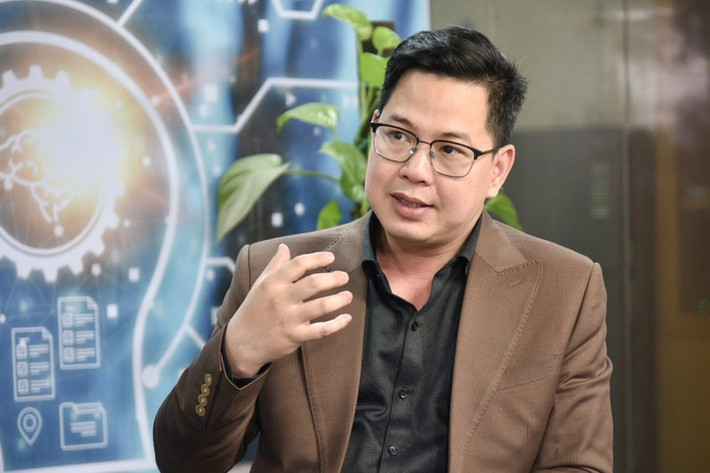The "imposter syndrome" is making a comeback with the wave of AI.
In the world of AI, many "ordinary" people can suddenly become experts in all fields by diligently reading and rewriting content created by AI. But precisely because of this, many genuine experts are feeling like "impostors" (impostor syndrome).
This is the feeling that you don't deserve your achievements, that you're not as good or smart as others think, and that the things you worry about and advise others on are nothing new. Many people also wonder, "What I'm saying is based on what I've just read about AI; am I becoming too dependent on AI?" or "Is AI doing everything and I'm just following along?".
This syndrome has been mentioned since 1970, although it wasn't officially included in medical literature. However, the problem is seen to be on the rise again with the recent wave of AI adoption.
If you feel that way, you're clearly not alone, and more and more people will feel the same way as the trend of everyone integrating AI into their lives and work to increase productivity.
The "imposter syndrome" is making a comeback alongside the recent wave of AI adoption. (Illustration)
This syndrome often appears and affects professions that require deep and broad-ranging thinking. It can be said that the higher an individual's role and position, the greater the self-doubt, especially when success is achieved too quickly and easily, thanks to AI which enables them to generate profound insights, emotionally charged writing, and groundbreaking proposals with minimal effort.
As AI becomes more intelligent and self-directed (like Manus), the number of these "experts" is increasing, and they are now facing a new wave of insecurity. This includes self-doubt about whether they are creating "original content," whether their skills are valuable, and whether they are truly intelligent or if the AI is the only intelligent one.
For example, a content creator using ChatGPT to speed up their writing process might feel they aren't creating "original" content, leading to doubts about their skills. Or a data scientist might question the value of their contribution when AI platforms are capable of performing complex analyses that previously required hours of manual work. It is AI that is robbing us of the traditional intellectual effort of deep thinking about problems, plunging us into a value conflict.
However, in reality, the expertise of professionals remains crucial in guiding the use of tools through prompts, explaining data, and making informed decisions, something that AI is not yet able to do completely automatically.
We should view AI as an extension of human intelligence.
AI has been changing the concept of intelligence from "what we know" to "how we shape our knowledge."
Intelligence was previously built through perseverance, effort, repetition, mental exertion, and overcoming difficulties to validate new knowledge.
But today's new knowledge is provided instantaneously by AI, making it feel too easy, no longer satisfying to discover new knowledge; nor do we feel any value in contributing anything meaningful when AI generates an idea or refines a strategy in a matter of seconds. We ask ourselves, is that "creativity" ours or the algorithm's?
Assoc. Prof. Dr. Tran Thanh Nam, Vice Rector of the University of Education , Vietnam National University, Hanoi
AI has shattered the traditional notion of intelligence. Intelligence was once 99% hard work and sweat. Intelligence is no longer about effort. And creativity is facing a crisis of human identity or whether authorship belongs to humans or machines.
Numerous surveys have shown that over 50% of AI users believe their AI assistants are smarter than them. As a result, they give up trying to think for themselves, gradually becoming dependent on AI for thinking and decision-making. From an educational perspective, this is a very worrying situation.
Recent surveys suggest that approximately 80% of us have already integrated AI into our work and creative processes. The question is, will this discomfort increase? What problems will people face? They are increasingly self-conscious that their thinking and creativity are merely outsourced (paid services to AI), while the rest is their own intellectual identity.
The way we overcome this is similar to how the fear of technology (technophobia) in the past will gradually fade with the normalization and widespread adoption of technology. We once feared computers taking jobs, feared cars causing accidents, and now AI is following a similar trajectory. Instead of resisting AI with ethical concerns, we should approach it by redefining intelligence to better suit this new world.
AI should be viewed as an extension of human intelligence. In this day and age, intelligence cannot be seen simply as the isolated result of hard work and effort, but rather as a continuous, dynamic process of collaboration between human intellect and artificial intelligence to refine ideas and deepen existing insights.
Intelligence is no longer measured by the effort to generate a single brilliant idea, but by the struggle of repeatedly searching for and following instructions for AI; it's a new strategy to synthesize, guide, and improve, with the impetus of AI, to produce meaningful results, create new value for humanity, and serve life.
The value of intelligence lies not in how hard we work, but in how effectively we engage with the underlying knowledge, with AI thinking, and with creative ideas. The value here is participation; we take control of the process even with AI assistance. The value of intelligence is not about knowing a lot of general knowledge (basic, superficial knowledge), but about the depth and validity of our understanding. And AI acts like an amplifier for our strategies and thinking.
The formula, easy to remember in English, is ROE (comprising Reframe Intelligence - Own the Process and Effort vs. Strategy), meaning reshaping the approach to intelligence, mastering the process of creating new knowledge, and developing strategies to amplify deep, creative thinking rather than effort. These are ways to overcome the "imposter syndrome" in true experts.
AI is not replacing artificial intelligence, but rather changing how we define it.
The rise of AI-induced "imposter syndrome" signals a potential shift in cognitive identity, challenging us to reconsider the meaning of education, thinking, creativity, and intelligence in a world where intelligence is no longer the exclusive domain of humans.
In the world of autonomous AI, the focus isn't on proving our intelligence is superior to AI's, but rather on learning how to shape our intelligence with AI's amplification.
Assoc. Prof. Dr. Tran Thanh Nam, Vice Rector of the University of Education, Vietnam National University, Hanoi
Source: https://daibieunhandan.vn/hoi-chung-ke-gia-mao-and-tri-thong-minh-trong-ky-nguyen-ai-post409733.html














































































































Comment (0)